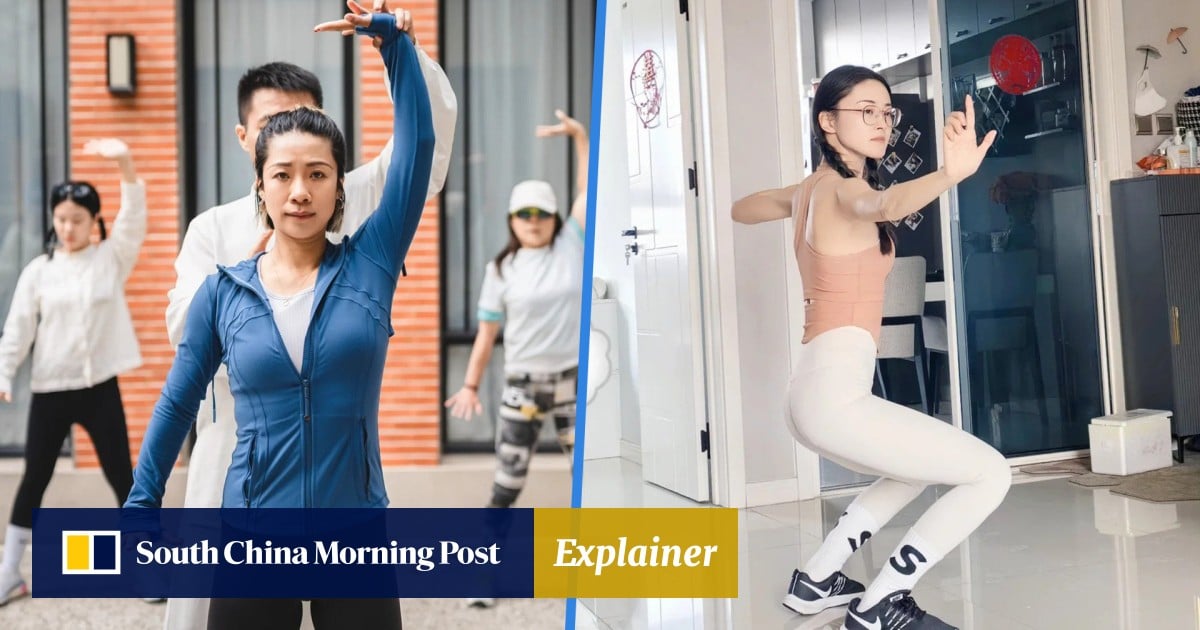The Post delves deeper into this emerging trend.
What is it?
Baduanjin dates back more than 800 years to China’s Song dynasty (960-1279) and stands as one of China’s oldest health and fitness routines.
Translated, it means “eight-section brocade”, a reference to the combination of eight stylised exercises comprising slow, flowing movements.
As a form of qigong, an ancient Chinese discipline, baduanjin training combines breathing exercises, meditation and gentle body stretches, focusing on regulating energy, or chi, and blood flow.
Generally, it uses the spine as the axis, incorporating symmetrical movements of the left and right and coordination between front and back.
According to qigong, diseases arise from blockages of chi flow, and treatment should promote blood circulation and chi circulations.
How did it go viral?
With the average working week exceeding 48.9 hours, the incidence of chronic fatigue syndrome in first-tier Chinese cities like Shenzhen, Shanghai, Beijing and Guangzhou ranges from 10 to 25 per cent, according to the China Association of Health Promotion and Education.
Research suggests that practising baduanjin may alleviate symptoms such as anxiety, muscle pain and extreme fatigue, making it particularly suitable for office workers.
“For those suffering from neck pain, the effects are truly remarkable. Plus, my sleep quality has notably improved, and I often wake up refreshed,” said one online observer who has been practising baduanjin for six months.
Compared to physically demanding activities like gym workouts, it is slow-paced, goes with soothing music, requires no equipment and can be practised in a minimal space.
In August last year, German fitness influencer Pamela Reif posted a video of herself doing baduanjin, which received more than 1.2 million views.
The hashtag translated as “What? Pamela is doing baduanjin?” also hit the trending topic charts on the X-like platform Weibo, attracting more than 160 million views.

Above and beyond
As well as practising baduanjin, workers in China grappling with heavy workloads and health problems are increasingly embracing traditional Chinese healthcare practices.
“Prolonged indoor stays deplete the spirit” is a quote from the classic Chinese scripture, Huangdi Neijing, which explains chi, and has been widely shared, serving as a caution for workers who remain seated for long periods.
Chinese herbal medicinal milk tea is also gaining popularity on the mainland social media platform, Xiaohongshu.
In addition to milk, tea and sugar, they incorporate ingredients such as tangerine peel, cinnamon, astragalus root and donkey-hide gelatin.
These ingredients are believed to address digestive issues and replenish chi and blood circulation.

